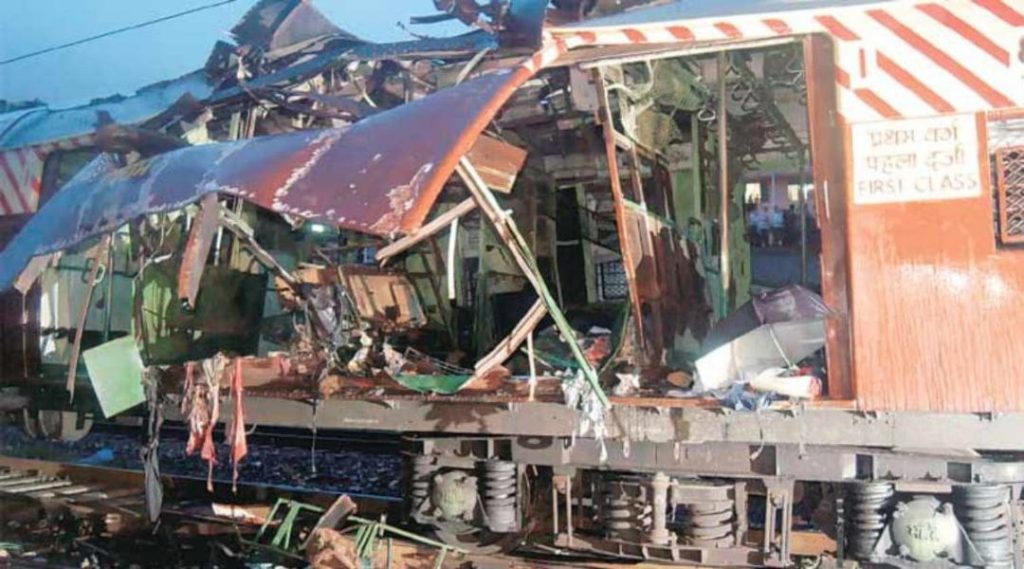
Bombay HC Acquits All 12 Accused in 2006 Mumbai Train Blasts that Killed 189 People
In a significant development, the Bombay High Court has acquitted all 12 people accused in the 2006 Mumbai train blasts case that claimed the lives of 189 people. The High Court has set aside the lower court’s order that convicted them, ruling that the prosecution has “utterly failed in establishing the case beyond a reasonable doubt”.
The 2006 Mumbai train blasts were a devastating terrorist attack that took place on July 11, 2006, when a series of bombs exploded on seven trains in Mumbai’s suburban rail network. The blasts caused widespread destruction and loss of life, and it was one of the most significant terrorist attacks in the city’s history.
In 2015, the trial court had sentenced five of the accused to death, while the remaining seven were sentenced to life imprisonment. However, the Bombay High Court has now acquitted all 12 accused, stating that the prosecution has failed to establish a strong case against them.
The High Court’s decision comes as a major relief to the accused, who had been languishing in jail for over a decade. The acquitted individuals include five men who were sentenced to death, and seven others who were sentenced to life imprisonment.
The prosecution had relied heavily on circumstantial evidence to prove its case, but the High Court has ruled that this evidence was not sufficient to establish the accused’s guilt beyond a reasonable doubt. The court has also noted that the prosecution failed to provide any concrete evidence linking the accused to the blasts.
The acquittal of the accused is a significant setback for the prosecution, which had been adamant that the accused were responsible for the blasts. The prosecution had argued that the accused were members of a terrorist organization and had planned and executed the blasts as part of a larger conspiracy.
However, the High Court has rejected the prosecution’s arguments, stating that the evidence presented by the prosecution was weak and unreliable. The court has also criticized the prosecution for its handling of the case, saying that it had failed to provide any credible evidence to prove the accused’s guilt.
The acquittal of the accused has raised questions about the effectiveness of the investigation and the prosecution’s handling of the case. The case was highly publicized, and the accused were arrested and charged with serious offenses. However, the High Court’s decision has raised doubts about whether the accused were truly responsible for the blasts.
The Bombay High Court’s decision is a significant development in the case, and it is likely to have far-reaching implications for the investigation and prosecution of terrorist cases in India. The acquittal of the accused highlights the importance of ensuring that the prosecution presents strong and credible evidence in court, and that the courts are vigilant in reviewing the evidence presented by the prosecution.
The case is also significant because it highlights the challenges faced by the Indian criminal justice system in dealing with terrorist cases. The case was highly complex and involved a large amount of evidence, much of which was disputed by the accused. The High Court’s decision shows that even in cases where the stakes are high and the emotions are running strong, the courts must remain impartial and focus on ensuring that justice is served.
Conclusion
The acquittal of the 12 accused in the 2006 Mumbai train blasts case is a significant development that highlights the importance of ensuring that the prosecution presents strong and credible evidence in court. The case is a reminder that even in cases where the stakes are high and the emotions are running strong, the courts must remain impartial and focus on ensuring that justice is served.
The Bombay High Court’s decision is a significant setback for the prosecution, and it raises questions about the effectiveness of the investigation and the prosecution’s handling of the case. The case is a reminder that the Indian criminal justice system must be vigilant in reviewing the evidence presented by the prosecution, and that the courts must be impartial and fair in their judgments.
Sources:






